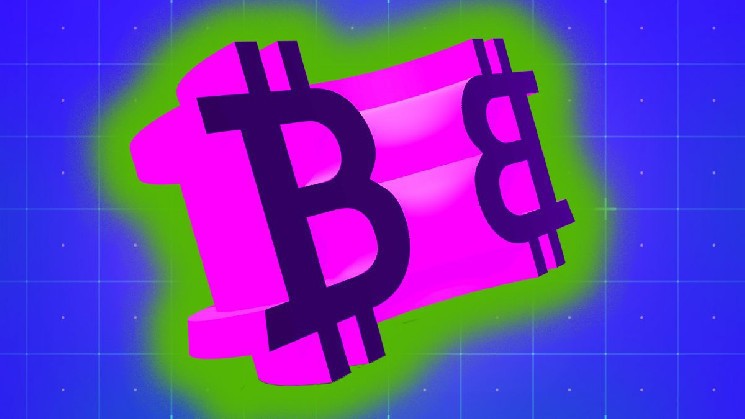Bitcoin rally is ‘pure gravy’ for miners finally seeing a light at the end of the tunnel

Bitcoin miners are finally getting some good news thanks to the rally in cryptocurrencies this year.
The first three months of this year are «shaping up to be a better quarter» than the previous one, investment firm Stifel said in an analyst note on Monday.
Hashprice, which measures how much miners earn based on a number of factors, is up 36% compared to March 12, at $0.08 per terahash.
«This for us is pure gravy,» CleanSpark Executive Chairman Matthew Schultz told The Block. «When you look at the price appreciation in bitcoin, it’s essentially another $200,000 a day in free cash flow if you’re mining 20 bitcoin a day, which is about where we are.»
Bitcoin price appreciation is happening at the same miners are finally seeing a slump in power prices — essentially reversing trends that squeezed their margins last year and drove some to bankruptcy. It may be a chance for a turnaround for even the hardest-hit companies.
«The market has helped us a lot,» a spokesperson with Core Scientific, which filed for bankruptcy in December, said last week. «Power prices have come down dramatically. And when you’re a bitcoin miner power pricing is your primary cost input … We’re spending a lot of money on professional fees, but operationally things are going great.»
More competition
Mining is a balancing act between many factors and as overall economic conditions improve, analysts have warned that the better environment will be partially offset by an increase in mining difficulty as competition heats up.
CleanSpark’s Schultz said he’s seen an influx of machines coming online, but nothing that surpasses what had already been planned and announced by miners.
«So we haven’t seen a direct impact yet, but we certainly expect that it could have an impact not only on difficulty and mining economics from that perspective but also it’s likely to have an impact on the price of mining equipment going forward,» Schultz said.
Difficulty is expected to jump between 5% and 6% this week according to different estimates. It will be the third increase in a row, following a 9.95 % and 1.16% jump.
«We expect continued growth to the overall network hash rate in the near term as newer gen machine deliveries are installed and brought online,» said the note from Stifel.
Because rackspace for machines is scarce at the moment, «if the price of BTC goes up a lot in 2023, there will be a lag between before the difficulty goes up to an extent,» the Core Scientific spokesperson said.
Machines and investments
The market for ASIC machines started trending higher in late January for the first time since December 2021. Prices for those in the top efficiency tier have jumped 9% in the last two months, according to data from Luxor, which runs an ASIC trading desk.
Mid-generation machines are typically more sensitive to changes in mining economics than the absolute newest generation models, and «we are seeing that play out right now,» said Luxor COO Ethan Vera.
«With Bitcoin heading towards $30k it’s becoming easier for companies to raise equity capital, allowing them to deleverage their balance sheet. This deleveraging is resulting in less distressed assets coming to market and a reduction of ASIC supply,» Vera said. «Miners will look to hedge revenue and costs, take on less leverage then before. But ASIC markets will trend up with bitcoin price.»
Prices could move «pretty quickly» unless machine supply available in the markets remains «too high,» he said.
Miners have been in survival mode for the past several months — striving to deleverage themselves and clean up their balance sheets. Amid the excitement from the last bull market in 2021 and the race to deploy as fast as possible, some took on large amounts of debt to buy as many machines as possible when prices were comparatively very high.
Not so fast
In June of last year, bitcoin liquidations from miners spiked, data from TheMinerMag shows, and many companies have continued to sell a large portion of their mined bitcoin. Even miners like Marathon and Hut 8 — which historically have held on to their production — started selling off a portion of their holdings in the last couple of months.
«The debt markets are starting to show signs of life,» Schultz said. «But by and large, unless you have a rock-solid balance sheet, they’re still mostly closed. So the access to capital is pretty much restricted to either equity or the sale of Bitcoin.»
CleanSpark said during its last earnings presentation in February that it would propose to increase the number of shares authorized for issuance from 100 million to 300 million, keeping that as an option as the company builds towards its growth target this year.
In September, Hive Blockchain struck a deal to sell up to $100 million in shares, while Iris Energy agreed to sell up to the same amount in shares to B. Riley. Terawulf said in January that it raised $32 million in equity, while also restructuring its existing debt.






 Bitcoin
Bitcoin  Ethereum
Ethereum  Tether
Tether  USDC
USDC  TRON
TRON  Dogecoin
Dogecoin  Cardano
Cardano  Bitcoin Cash
Bitcoin Cash  Chainlink
Chainlink  Monero
Monero  LEO Token
LEO Token  Stellar
Stellar  Zcash
Zcash  Litecoin
Litecoin  Hedera
Hedera  Dai
Dai  Cronos
Cronos  Tether Gold
Tether Gold  OKB
OKB  Ethereum Classic
Ethereum Classic  KuCoin
KuCoin  Cosmos Hub
Cosmos Hub  Gate
Gate  Algorand
Algorand  VeChain
VeChain  Stacks
Stacks  Tezos
Tezos  TrueUSD
TrueUSD  Dash
Dash  IOTA
IOTA  Basic Attention
Basic Attention  Theta Network
Theta Network  NEO
NEO  Decred
Decred  Synthetix
Synthetix  Qtum
Qtum  Ravencoin
Ravencoin  0x Protocol
0x Protocol  DigiByte
DigiByte  Zilliqa
Zilliqa  Nano
Nano  Siacoin
Siacoin  Holo
Holo  Numeraire
Numeraire  Waves
Waves  Ontology
Ontology  Status
Status  Enjin Coin
Enjin Coin  Hive
Hive  BUSD
BUSD  Pax Dollar
Pax Dollar  Lisk
Lisk  Steem
Steem  Huobi
Huobi  OMG Network
OMG Network  NEM
NEM  Bitcoin Gold
Bitcoin Gold  Augur
Augur  Bitcoin Diamond
Bitcoin Diamond